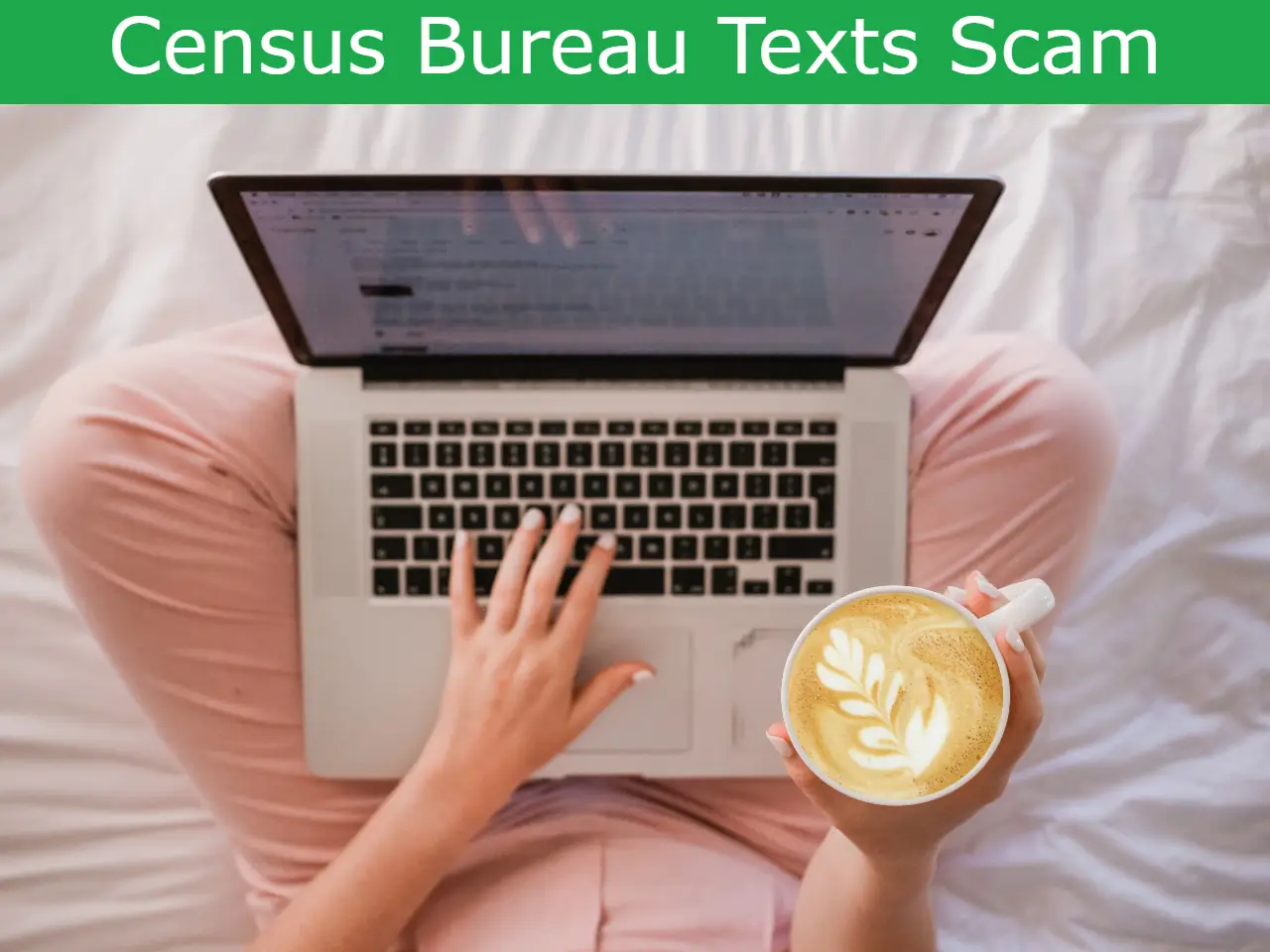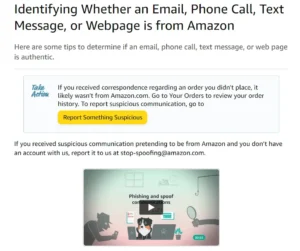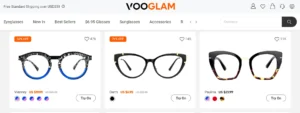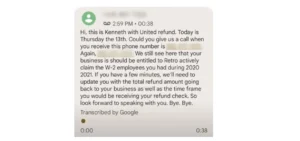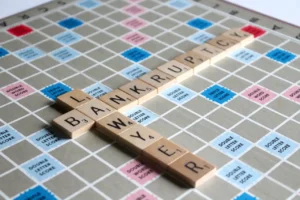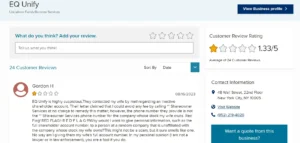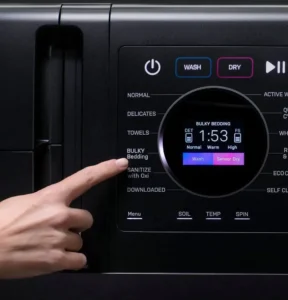Census Bureau Texts Scam – The following article aims to provide a comprehensive guide on how to identify genuine text messages from the Census Bureau.
Text messaging and email are utilized by the Census Bureau for the Household Pulse Survey, where randomly selected individuals receive messages to collect data.
Authentic messages can be recognized by their sender, either COVID.survey@census.gov or 39242* and the survey link, which will contain survey.census.gov in the URL.
It is crucial to verify the authenticity of the message, as only selected addresses are eligible to complete the survey.
The Household Pulse Survey serves the purpose of gathering information on household experiences during the coronavirus pandemic and supplying prompt data for pandemic recovery efforts. The survey covers various topics such as demographics, child care, education, employment, transportation, and health matters.
Confidentiality of survey responses is guaranteed by the Census Bureau, as mandated by law, ensuring the privacy and protection of respondents’ information.
Additionally, this guide offers tips to discern fake messages from government agencies, encompassing scams relating to power/utility, phony banking, IRS impostors, emergency situations, and favor requests.
Table of Contents
How to Identify Authentic Messages?
One way to identify authentic Census Bureau text messages is by checking if the message is randomly sent to collect data and if it comes from the email address COVID.survey@census.gov or the sender ID 39242*. This ensures that the message is legitimate and not a fraudulent attempt.
To further verify the sender’s email address and phone number, individuals can visit the official Census Bureau website and cross-reference the information provided.
It is important to note that the survey link included in the message should have survey.census.gov in the URL, as this is another indicator of authenticity.
If individuals receive suspicious messages that they believe may be fraudulent, it is recommended to report them to the Census Bureau immediately.
By following these steps, individuals can ensure the authenticity of Census Bureau text messages and protect themselves from potential scams.
Purpose of the Household Pulse Survey
The purpose of the Household Pulse Survey is to gather timely data on household experiences during the coronavirus pandemic, providing valuable information for federal and state agencies in their recovery planning efforts.
This survey aims to capture the impact of the pandemic on households and obtain high response rates to ensure accurate and representative data.
By studying various aspects such as demographic, child care, education, employment, transportation, and health issues, the survey provides a comprehensive understanding of the challenges faced by households during this crisis.
Additionally, the Household Pulse Survey includes new questions on natural disasters and Medicaid coverage, expanding its scope and relevance.
The data collected through this survey plays a crucial role in informing pandemic recovery strategies and policy decisions, enabling government agencies to effectively address the needs of affected households.
Length and Topics of the Survey
The Household Pulse Survey is a comprehensive questionnaire that delves into various aspects such as demographic, child care, education, employment, transportation, and health issues, providing valuable insights into the impact of the pandemic on households’ experiences.
This survey takes approximately 20 minutes to complete and includes a wide range of social and economic topics. The data collection categories cover core household information and emergent issues related to the pandemic.
By studying these topics, the survey enables federal and state agencies to plan for recovery efforts effectively. Additionally, the survey includes questions on natural disasters and Medicaid coverage, expanding its scope beyond the immediate effects of COVID-19.
The length and breadth of the survey ensure a thorough understanding of the challenges faced by households and contribute to the development of targeted interventions and policies.
Confidentiality of Responses
Ensuring the privacy and protection of survey participants’ information, the Census Bureau is legally obligated to maintain the confidentiality of responses, with data not publicly released in a manner that identifies individuals. This commitment to data protection is paramount in building trust with survey respondents.
The Census Bureau handles survey responses with utmost confidentiality, implementing rigorous privacy measures to safeguard the information provided. These measures ensure that participants can trust that their data is secure and will not be misused or accessed by unauthorized individuals.
By adhering to strict confidentiality protocols, the Census Bureau upholds its responsibility to protect the privacy of individuals who contribute valuable data to the Household Pulse Survey. This commitment to privacy supports the agency’s goal of collecting accurate and reliable information for federal and state agencies to aid in pandemic recovery planning and other initiatives.
Census Bureau Texts Scam – Tips to Identify Fake Messages
To identify fake messages from government agencies, individuals should be cautious of various scams. These include power/utility scams, phony banking texts/phishing schemes, IRS impostors, emergency scams, and favor-for-a-friend scams.
Power/utility scams involve impostors claiming overdue payments for utilities. They may threaten to shut off services if immediate payment is not made.
Phony banking texts/phishing schemes aim to obtain account information from unsuspecting victims. These messages often appear to be from legitimate banks or financial institutions, but they are actually sent by scammers trying to gain access to personal and financial information.
Genuine contacts from the IRS are usually preceded by letters. Therefore, individuals should be wary of any unexpected communication claiming to be from the IRS. The IRS typically does not initiate contact through email, text messages, or social media.
Emergency scams involve fraudsters impersonating loved ones in urgent situations. They may claim to be in a dire situation and ask for immediate financial assistance. It is important to verify the authenticity of such messages before taking any action.
Favor-for-a-friend scams trick individuals into providing small favors or money. Scammers may impersonate a friend or family member and ask for help, often claiming to be in a difficult situation. It is essential to confirm the identity of the person before providing any assistance.
If individuals come across any suspicious messages, they should report them to the relevant authorities. By doing so, they can help prevent others from falling victim to these scams.
Identifying fake messages from government agencies requires individuals to be cautious of various scams. Scammers often use the Census Bureau as a disguise to deceive people and obtain personal information or money. To help individuals recognize and report fake Census Bureau messages, it is important to understand common scam tactics. Here are some tips:
Power/Utility Scams: Scammers claim overdue payments for utilities and threaten disconnection if payment is not made immediately.
Phony Banking Texts/Phishing Schemes: Fraudsters impersonate banks and ask for account information, passwords, or login credentials.
IRS Impostors: Genuine IRS contacts are usually preceded by letters, so be wary of unexpected text messages claiming to be from the IRS.
Emergency Scams: Fraudsters impersonate loved ones in urgent situations and request money or assistance.
Favor for a Friend Scams: Scammers pose as friends in need and ask for small favors or money.
If you receive a suspicious message claiming to be from the Census Bureau, report it immediately to the Census Bureau or local authorities. Stay vigilant and protect yourself from potential scams.
Frequently Asked Questions
How often are text messages sent for the Household Pulse Survey?
Text messages for the Household Pulse Survey are sent randomly to collect data. The frequency of these messages is not specified. However, the survey targets selected addresses and is not mandatory for everyone.
Can anyone complete the survey or are there specific criteria for participation?
Participation in the Household Pulse Survey is limited to selected addresses, indicating specific criteria for participation. The survey is sent randomly, and its frequency is not specified.
Are there any consequences for not participating in the Household Pulse Survey?
Not participating in the Household Pulse Survey does not have any specific consequences. However, participation criteria exist as only selected addresses can complete the survey, and responses are valuable for pandemic recovery efforts and planning by federal and state agencies.
What happens to the survey responses after they are collected?
After survey responses are collected, the Census Bureau stores the data securely and ensures confidentiality. The data undergoes rigorous analysis to generate insights into household experiences during the pandemic, aiding in recovery planning for federal and state agencies.
How can individuals report fake messages from government agencies?
Individuals can report fake messages from government agencies by contacting the appropriate government agency directly or forwarding the message to the agency’s designated email address for reporting scams. It is important to protect against fraud and be vigilant in identifying scams.
Also Read
Is Advancedfinancialhelp.org Scam or Legit? Unveiling The Truth
Mupups Scam Explained: A Scam Usps Website Stealing Your Data
Is airjordanofficial.us.com Legit or a Scam? Uncovering The Truth
Also Read
Want a Bump Energy Review – Boost Your Energy Or Scam?
Vuletti Jewelry Reviews – Is Vuletti Jewelry A Scam or Legit?
Cool n Save Reviews – Is Cool N Save Legit or a Scam?
Also Read
Arfym Clothing Review – Affordable And Trendy Clothing?
Vrinax Reviews – Is Vrinax.Com Legit or a Scam?
Is Diarygiraffe Com Legit or a Scam? – The Qvc Impersonation Scam
Also Read
Is Mymups.Com Scam or Legit? – Fake Usps Website Threat
Is Mrkups.Com Scam or Legit? – Impersonating Usps
Is Salesaverr.Com Scam or Legit? Salesaverr.Com Reviews
Also Read
Is Oruzora.Com Scam or Legit? Using HSN and AMAZON Brands
Is Pearllis.Com Scam or Legit? Pearllis.Com Reviews
Cweede.com Reviews – Is Cweede.com Legit or a Scam?
Also Read
Is Geek Squad Email Scam or Legit? How to Stay Safe Online
Faith Bra Reviews – Is Faith Bra Legit & Worth Trying?
Baiia Swimwear Reviews – Is Baiia Swimwear Worth the Hype?
Also Read
Fokups Scam Explained – The Fake Ups Redelivery Website Scam
Is Allure Sports Scam or Legit? Alluresports.Com Scam Review
Is Kramer-Newman Bottle Return Scam or Legit? – Find Out!
Also Read
Is enroll.krollmonitoring.com Scam or Legit? Uncovering The Truth

